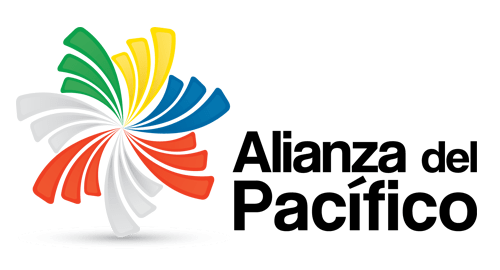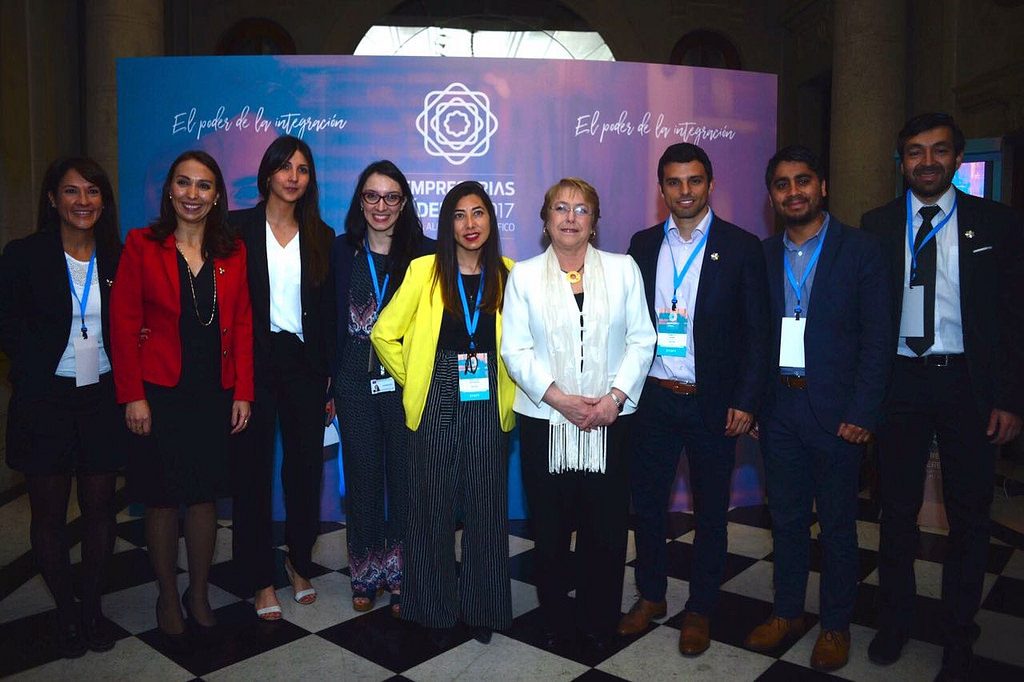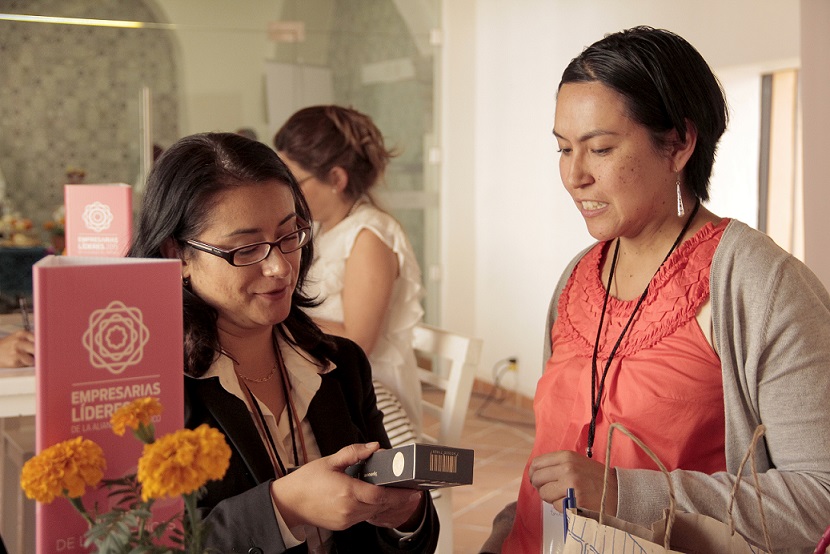DECLARATION OF CALI
The presidents of the Republic of Chile, Michelle Bachelet Jeria; of the Republic of Colombia, Juan Manuel Santos Calderón; of the United States of Mexico, Enrique Peña Nieto; and of the Republic of Peru, Pedro Pablo Kuczynski Godard, reunited in Santiago de Cali, Colombia, on June 30th, 2017, at the XII Summit of the Pacific Alliance.
WE DECLARE:
1.- Our commitment to the Pacific Alliance as a process that promotes deep regional integration through the free movement of people, goods, services and capital, to strengthen growth and sustainable development aimed at improving the living standards of our inhabitants and thus facing regional and global challenges.
2.- Our satisfaction with the first year of entry into force of our free trade area through the implementation of the Additional Protocol to the Framework Agreement, as well as with the significant advances in regional integration after six years of existence of the Pacific Alliance.
3.- We welcome the announcement of the kick off of negotiations to grant Australia, Canada, New Zealand and Singapore the status of Pacific Alliance Associate State by concluding and implementing agreements with high standards of quality in trade disciplines. In this way, we are making progress towards achieving the founding objectives of the Pacific Alliance to promote a strategic integration scheme, which will boost the economic development and competitiveness of our economies. In the case of Mexico and Canada, these negotiations will be without prejudice to the validity and functioning of NAFTA, to which both countries are parties.
4.- Our commitment to free trade, regional integration and the strengthening of the multilateral trading system as means to promote competitiveness and development of our economies.
5.- Our conviction to continue promoting a green growth strategy as a way to face the challenges of climate change, which affect the region especially; reaffirm the declaration we endorse at COP 20 / CMP 10 in Lima in December 2014, as well as our endorsement of the Paris Agreement of December 2015, and we will intensify the efforts of our countries in the measurement, reporting and verification of CO2 and other greenhouse gas emissions with a view to identifying possible voluntary market mechanisms between the region.
6.- Our willingness to intensify efforts to incorporate the gender perspective in a transversal way in the programs and activities of the Pacific Alliance, recognizing the important role of women, including businesswomen and entrepreneur women in the growth and development of our countries, as well as for compliance with 2030 Agenda for Sustainable Development.
7.- We recognize and welcome the progress made by the Ministers of Finance in implementing their work agenda, which is set out in Annex 2, that seeks to promote integration in order to foster solid, stable and inclusive growth. Thus, we highlight the agreement to establish a debt fund that facilitates the financing of infrastructure projects and we value the decision to sign a multilateral agreement that approves the tax treatment of the income obtained by the pension funds recognized in our countries.
8.- Our recognition for the following achievements in the last year:
- The interoperability of the Single Window for Foreign Trade, the electronic exchange of phytosanitary certificates, the homologation of certificates of digital origin, the methodology for reducing the time of goods clearance and the implementation of the action plan for the mutual recognition of authorized economic operators, for the facilitation of trade in the region.
- The conclusion of the negotiation of the Annex on Food Supplements, which will remove unnecessary obstacles to trade, with a view to facilitating and increasing trade in these products in the region.
- The launch of the regional digital agenda and the roadmap that outlines a way to improve the competitiveness of our countries through ICTs and the promotion of the digital economy as sources of growth and economic development.
- The consolidation of the Platform for Student and Academic Mobility, which in its 9th call, held in 2017, granted 400 scholarships, using for the first time the Single Application Platform, reaching a total of 1,440 scholarships; as well as the creation of information gathering tools to foster progress in the recognition of degrees and national qualifications frameworks.
- The creation of the Network of Innovation Agencies (InnovAP), the adoption of operating protocols for the Pacific Alliance Business Accelerators (Red AcelerAP) and the Network of Angel Investors (Ángeles AP), as well as the first version of the Pacific Alliance Innovation Awards, to promote the internationalization of innovation and entrepreneurship.
- The implementation of the Entrepreneurial Capital Fund with the collaboration of IDB-MIF, the completion of the memorandum of understanding for collaboration between Business Development Centers, the identification of mechanisms to encourage small and medium-sized enterprises (SMEs) participation as suppliers in the public procurement processes of the member States, and the holding of the First SME Encounter to promote its export development.
- The implementation of the Agreement on the Accelerated Patent Procedure, which streamlines administrative procedures and reduces the costs for obtaining them in the four member States.
- The creation of the Pacific Alliance Investment Facilitation Initiative (IFIAP).
- The creation of the Vacation and Work Program Guide, the Consular Cooperation Guide and the Pacific Alliance Traveler’s Guide, which facilitates the informed mobility of the citizens of the four countries and tourists.
- The actions carried out in favor of the diversification of the supply of aquaculture and fishery products, as well as the identification of the exportable offer of the four member countries to promote their international commercialization.
9.- Our satisfaction with more than 40 activities by the Pacific Alliance Technical Groups and Subgroups and more than 70 promotional activities led by our diplomatic representatives and promotion agencies, which reaffirm the complementarity and commitment of the Member States in deepening the four pillars of integration.
10.- Our approval for the incorporation of Croatia, Slovenia and Lithuania as Pacific Alliance Observer States, at the XVII Meeting of the Council of Ministers, held on June 2, 2017 in Mexico City.
11.- Our appreciation to the 52 Pacific Alliance Observer States that participated in the Meeting with the Council of Ministers on June 29, 2017. Likewise, we highlight the work done with the observers that during the last year have promoted activities and cooperation projects in areas defined as priorities by the Pacific Alliance, such as trade facilitation, SME internationalization, science technology and innovation, people movement and education.
12.- Our firm intention to strengthen integration in Latin America, for which we welcome the holding of the second Meeting of Ministers of Foreign Affairs and Ministers responsible for Foreign Trade of Mercosur and of the Pacific Alliance, in which a roadmap was adopted for the development of future works between the two mechanisms.
13.- Our satisfaction with the strengthening of the space for cooperation in areas of common interest and rapprochement with Asia-Pacific, through the holding in November 2016 of the Second Dialogue between the Presidents of the Pacific Alliance and the Leaders of the Economies of the Asia-Pacific Economic Cooperation (APEC) and the Third Ministerial Meeting between our mechanism and the Association of Southeast Asian Nations (ASEAN) in September 2016 which adopted a Framework for Cooperation.
14.- We thank the Pacific Alliance Business Council (CEAP) for its contribution to the integration process through its various proposals and recommendations to governments on issues such as trade facilitation and investment, regulatory cooperation, innovation, finance, entrepreneurship, development of new technologies, SMEs and education.
15.- Our recognition of the support and cooperation provided by the Inter-American Development Bank (IDB), the Latin American Development Bank (CAF), the Economic Commission for Latin America and the Caribbean (ECLAC), the Organization for Economic Co-operation and Development (OECD), the World Bank (WB) and the European Union (EU) of great importance to advance deep integration initiatives.
16.- We are grateful to the Republic of Chile for the work carried out in its capacity as Pro Tempore Presidency of the Pacific Alliance in the last year and our support to the Republic of Colombia in the exercise of this responsibility that it assumes today.
17.- We thank the authorities and inhabitants of Santiago de Cali and Valle del Cauca, for the kind reception that contributed to the XII Summit of the Pacific Alliance and associated meetings.
Santiago de Cali, Colombia, June 30, 2017
FOR THE REPUBLIC OF CHILE
Michelle Bachelet Jeria President
FOR THE UNITED MEXICAN STATES
Enrique Peña Nieto President
FOR THE REPUBLIC OF COLOMBIA
Juan Manuel Santos Calderón President
FOR THE REPUBLIC OF PERU
Pedro Pablo Kuczynski Godard President




